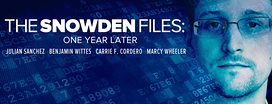Ben Wittes begins his essay by observing that, just as he takes on faith that government agencies are not currently raiding his house, he is “remarkably confident” that the NSA is not illicitly wiretapping him. As someone who occasionally corresponds with Guardian editors and human rights activists outside the United States, I am frankly not nearly so confident that none of my communications have been “incidentally” collected, but how either of us is personally affected is rather beside the point. I’m also, after all, confident that, as a person of pallor, I could have strolled through Brooklyn at any time over the past few years without being subject to a humiliating “stop and frisk.” That is, in a sense, the problem.
I dwell on what Ben no doubt intended mostly as a rhetorical flourish because concerns about surveillance so frequently evoke blasé responses to the effect of: “Well, I’m sure they’re not interested in me, so I don’t really care; I have nothing to hide.” Privileged folks like Ben and I may well be right to think the laws, rules, and institutional priorities governing the intelligence community will protect us—a fortiori if we happen to be vocal advocates of that community—but the test of a just system is not how it treats the privileged. That doesn’t mean a privileged perspective is necessarily wrong, but it does mean we ought to be cautious about any inference from “this is not a problem I worry about” to “this is not a problem.”
In a democracy, of course, the effects of surveillance are not restricted to its direct targets. Spying, like censorship, affects all of us to the extent it shapes who holds power and what ideas hold sway. Had the FBI succeeded in “neutralizing” Martin Luther King Jr. earlier in his career, it would hardly have been a matter of concern solely for King and his family—that was, after all, the whole point.
Instead of a couple wonks comfortably ensconced in D.C. institutions, let’s instead ask a peaceful Pakistani-American who protests our policy of targeted killings, perhaps in collaboration with activists abroad; we might encounter far less remarkable confidence. Or, if that seems like too much effort, we can just look to the survey of writers conducted by the PEN American Center, finding significant percentages of respondents self-censoring or altering their use of the Internet and social media in the wake of revelations about the scope of government surveillance. Or to the sworn declarations of 22 civil society groups in a lawsuit challenging bulk phone records collection, attesting to a conspicuous decline in telephonic contacts and members expressing increased anxiety about their association with controversial or unpopular organizations.
What’s important to keep in mind here is that even if Ben were well justified in his belief that government is unlikely to ever again misuse its powers against any peaceful citizens, the panoptic chilling effect these systems exert on many who lack his (let us suppose) superior understanding would still inflict a real cost in the currency of democratic engagement. Some people, no doubt, will be unreasonably paranoid regardless of the facts about the government’s powers and capabilities, while others now anxious may be reassured once articulate folks like Ben and Carrie explain the rules already in place. At least some, however, may be reassured only if the law is tightened in appropriately reassuring ways. If so, and if members of marginalized groups have sound historical reason to fear mistreatment by government, then folks like Ben and I should be cautious of generalizing too quickly from the fact that we don’t personally share those fears.

